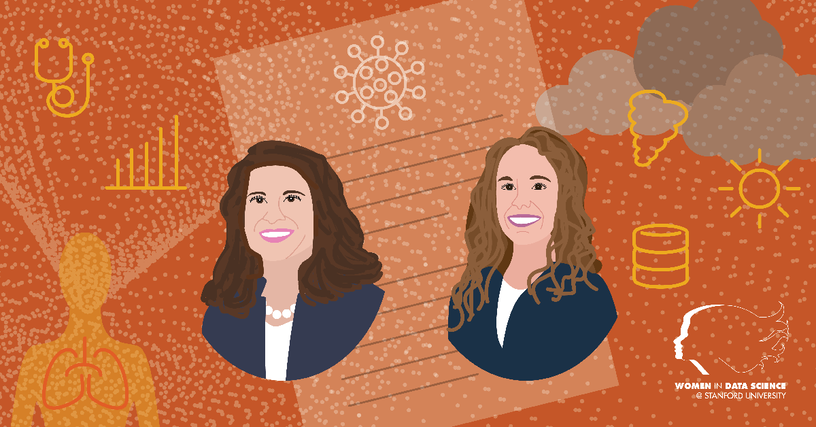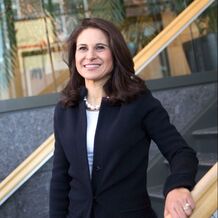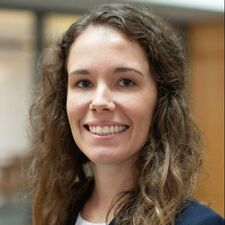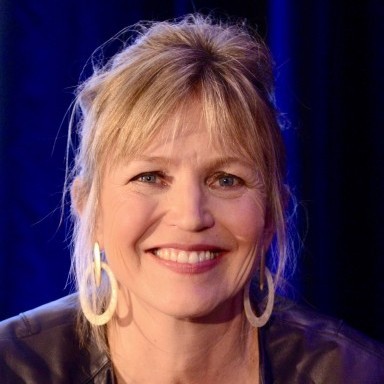Using Data Science to Study Air Pollution Effect on COVID-19 Outcomes


Harvard University’s T.H. Chan School of Public Health

Harvard University’s T.H. Chan School of Public Health
About This Episode
Francesca Dominici and Rachel Nethery, from Harvard University’s T.H. Chan School of Public Health, are working to inform public health policy through research at the intersection of environmental health science, data science, climate change and health policy.
Highlights
With the onset of the COVID-19 pandemic, Francesca Dominici and Rachel Nethery saw a way to connect the research they were doing on air pollution and health with the pandemic. They are studying the effects of air pollution exposure on different causes of hospitalization to see if pollution could increase a person’s vulnerability to COVID-19. While the research is at a preliminary stage, there is a lot of information that points towards the possibility that long-term exposure to air pollution could increase the mortality risk for COVID-19.
Since this research is so important and timely, they have sometimes felt under pressure from the media and from high level government officials (from both parties) to answer questions with certainty about how many lives would be saved by reducing air pollution. They say it can be stressful to talk with certainty about their preliminary findings because the research is ongoing. But as a scientist, you should do your work with the utmost rigor and be able to communicate the uncertainties and the possibility that there’s bias in the results, knowing this is still valuable scientific information and should be considered within a larger body of evidence to make policy.
Francesca feels optimistic that this research is going to make a tremendous positive contribution and the most important thing is to do work that matters and has an impact. She thinks that the field of public health is getting much more attention and respect. “This is the first time we’ve had the opportunity to speak with high-ranking senators about the importance of issues regarding climate change, health disparity, data science and air pollution. There is a silver lining in recognizing the value of data and the value of science in a way that has never been done before,” she says.
Rachel agrees. “I feel privileged to be starting my career at a time when suddenly everybody in the US knows what an epidemiologist is and appreciates the value of health data science. Policy makers and the media are very interested at this moment in what data can tell us about our future with COVID. I hope that moving forward this might ignite curiosity about other ways that we could integrate health data science into our policymaking and our lives,” says Rachel. “One of the most important things that government can be doing right now is to collect data in a systematic and reliable way about health and public safety.”
When asked what she would put in an executive order in the area of health, Francesca says she would first lower the level of fine particulate matter allowed in the National Ambient Air Quality Standard, especially during the pandemic. Second, she would ensure we are not just cleaning the air for the wealthy as poorer minorities are most affected by air pollution. And finally, she would put accomplished women scientists at the head of all our health agencies: NIH, CDC, FDA, and EPA, because they understand the issues and would get things done.

About the Host
Margot Gerritsen
Stanford Professor [Emerita] Margot Gerritsen is the Executive Director and co-founder of Women in Data Science Worldwide (WiDS) and born and raised in the Netherlands. Margot received her MSc in Applied Mathematics from Delft University of Technology before moving to the US in search of sunnier and hillier places. In. 1996 she completed her PhD in Scientific Computing & Computational Mathematics at Stanford University and moved further West to New Zealand where she spent 5 years at the University of Auckland as a lecturer in Engineering Science. In 2001, she returned to Stanford as faculty member in Energy Resources Engineering. Margot was the Director of the Institute for Computational & Mathematical Engineering (ICME) at Stanford from 2010-2018 and the Senior Associate Dean for Educational Affairs in Stanford’s School of Earth Sciences from 2015-2020. In 2022, Margot took Emerita status to devote herself to WiDS full time. Margot is a Fellow of the Society of Industrial & Applied Mathematics, and received honorary doctorates from Uppsala University, Sweden, and the Eindhoven University of Technology in the Netherlands. She now lives in Oregon with her husband Paul.
Connect with Margot Gerritsen on Twitter (@margootjeg) and LinkedIn.
Find out more about Margot on her Stanford Profile.

